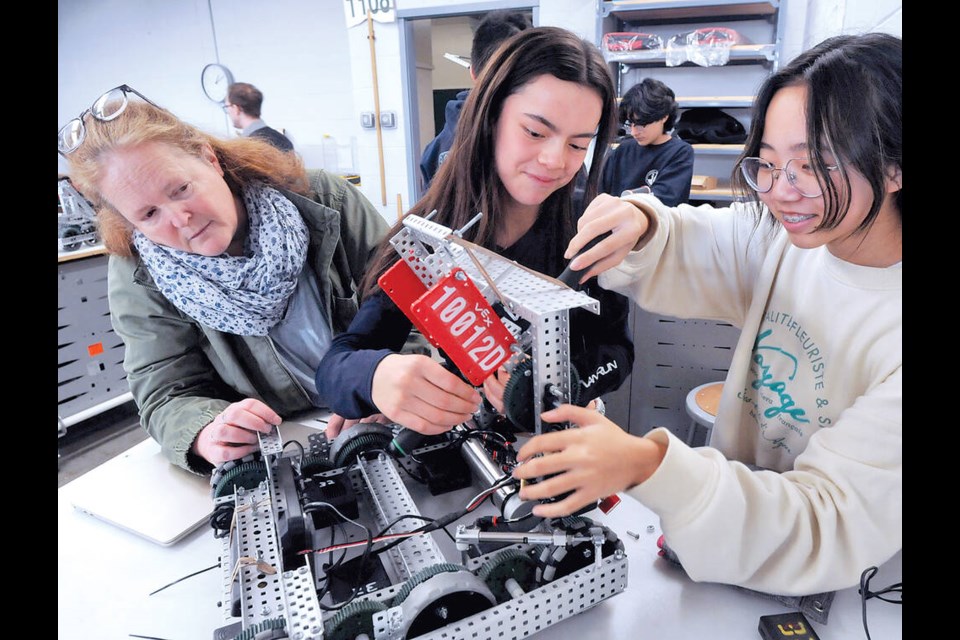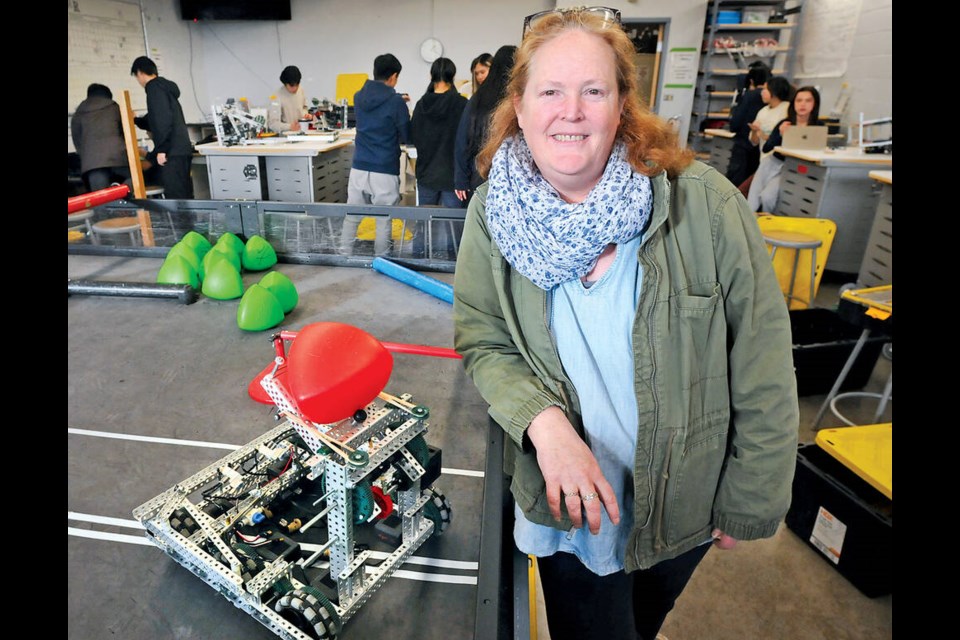A West Vancouver teacher who pioneered the importance of digital literacy and teaching kids to navigate responsibly in the online world has been awarded the Prime Minister’s Award for Teaching Excellence.
Cari Wilson, district vice-principal of innovation and technology, was in Ottawa recently to accept the award, along with 20 other teachers from across Canada. One of the most powerful parts of the experience was meeting those other teachers and learning about the innovative approaches they are using in their classrooms, she said.
Wilson’s own journey to understand how teachers could help kids use technology to learn began about 15 years ago, when she was asked to pilot a program of bringing laptops into elementary school classrooms to see if that would help students become better writers.
“The next thing I knew I had a cart on wheels full of very old laptops,” she said.
But she and other teachers quickly saw how the technology could be used to help students engage and create in the classroom. In time for the Vancouver 2010 Olympics, Wilson’s students created a multi-media website translated into different languages that ended up being recognized by Microsoft.
From there, she hasn’t looked back, and has been instrumental in teaching students to cast a skeptical eye on information they find online, encouraging girls to get into coding and embracing changes like the advent of artificial intelligence.
One of the most important lessons she’s learned about technology is “It’s not going away. It’s not going to disappear,” she said. “It’s just going to get increasingly complex.”
As a teacher, Wilson said her role is to show kids how to be good citizens online.
“Some of it is fairly simple and starts quite young,” she said. Kids need to know, for instance that “just because someone says they are an 11-year-old kid from the Lower Mainland doesn’t mean they are.”
Students also need to learn to fact check what they read online before repeating it, she said. “There’s a lot of garbage on the Internet. A lot of it’s not true.”
Having a face-to-face conversation is very different that an online one and gives you far more social clues than texting in Snap Chat, for instance.
But technology can also be an important tool, said Wilson.
“What we try to do in school is to use it for creating of knowledge, rather than sitting and mindlessly consuming what’s on the Internet.”
Wilson is also actively involved in encouraging girls to get into coding, computer programming and science-based areas of learning.
“Ideally we’d be at a 50/50 split (of girls and boys) in those type of courses,” she said. “We’re nowhere near that.” Currently only between 20 and 23 per cent of people who go into those fields are female. Societal expectations feed into that, she said.
“There’s a lot of pressures on them to be and act a certain way,” she said, and an acceptance of the idea that girls aren’t good at math and science.
“If I could get Taylor Swift to promote programming, we’d have young girls all over the world starting to program,” she said.
While awaiting a Swifties in Science revolution, on the North Shore, Wilson started the group Girls with Superpowers, which targets elementary-aged girls and teaches them that science and coding can be fun. “There’s lots of really interesting things you can do,” said Wilson, who has three groups meeting online to build games, create art and create apps.
Most recently, the advent of artificial intelligence has levelled up the need for students to understand the technology they are interacting with, said Wilson.
“We know students are using AI but we’re not sure how we’re going to handle it,” she said.
Some AI tools can be incredibly helpful to teachers, she said. But students also need to know that AI makes mistakes and can authoritatively put out information which isn’t true.
“There are a lot really positive things happening online,” she said. “We don’t want to throw the baby out with the bath water.
“I don’t think it’s helpful to put our heads in the sand.”
Wilson said she’s been fortunate to work in West Vancouver, a school district which has been forward thinking when it comes to technology, “instead of shrinking from it.”




